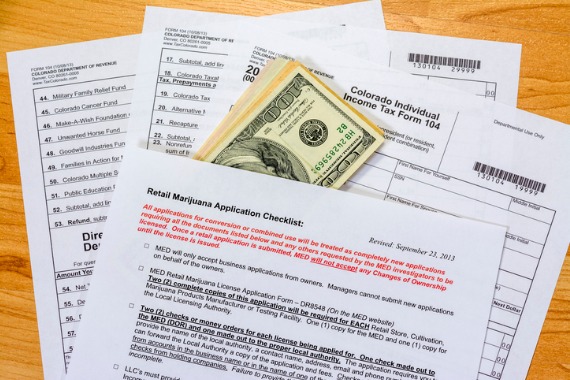COVID-19 Has Made Marijuana an Essential Item
Amid the coronavirus pandemic, there has undoubtedly been an uptick in cannabis use. Customers in North America have reported intending to maintain or increase consumption of cannabis products and when asked to stay home and stock up necessary items, many states found residents stocking up marijuana as much as toilet paper and other needed items.
As a result of the surge in demand, many states have chosen to designate cannabis as an essential item.
Steps taken by States
Once the COVID-19 pandemic began to spread and states put shelter-in-place rules in place, there have been subsequent calls for cannabis to be considered an essential service across the country.
The increasing demand is a boon for the industry, but it won’t be business as usual. Social distancing means no gathering in dispensaries and communities are increasingly trying to come up with strategies to keep people home.
Individual states have taken specific measures to ensure a safe and available supply of cannabis. Dispensaries are to remain open and provide cannabis as an essential item in many states, so local governments are getting creative.
Colorado has adopted the curbside pickup method, which ensures the smooth supply of marijuana without compromising social distancing. States like Illinois, Connecticut, Michigan, and Florida have also considered cannabis as an essential item, so home deliveries and curbside pickups at dispensaries are available.
Who’s Consuming All This Cannabis?
Some medical cannabis associations have tried to convince lawmakers to permit dispensaries open as pharmacies. Medical cannabis can help patients suffering from leprosy, pain, and anxiety, PTSD, and other chronic issues. Patients with these severe illnesses would face difficulty in the face of unavailable medications.
Medical marijuana patients are most likely to maintain their current consumption level, which could be a reflection of patients adhering to prescribed dosage recommendations. Non-medical users, by comparison, report the intent to increase or decrease consumption because of the lifestyle changes that come with staying home for long periods.
The Government “Getting” It
Recently, a Forbes article discussed how government and public health officials understand the importance of marijuana among its citizens.
“The recognition by our government officials that cannabis is indeed not just here to stay, but an essential part of life for millions of Americans—particularly in the patient community—is a welcome move in the right direction,” said by NORML Executive Director Erik Altieri on this current situation.
Stocking Up on Cannabis
Some projections had the coronavirus pandemic harming the sales and demands of cannabis products. But while the pandemic caused a downturn for many companies and industries across the globe, it has benefitted the marijuana industry quite well.
As an industry already struggling with supply and demand concerns, CDC announcement to self-quarantine has given cannabis a reprieve when demand surged.
The stock performance of several cannabis companies improved when others fell. At the same time, Wall Street analysts continue to project cannabis stocks to outperform their peers. Surprisingly, small cannabis providers seem to be doing better than the more prominent players.
Unfortunately, it’s not all good news for cannabis workers as some challenges still loom over the sector. Marijuana is still illegal under federal law, so its employees have limitations seeking emergency relief during the pandemic. Currently, in states where the plant is still illegal, the path to legalization has halted.
With public health and safety a top priority these days, trade shows and conferences have been canceled to slow the spread. These public gatherings are a significant driver of cannabis legislation and trends
With the increase in demand and sales of cannabis products, the industry’s struggles haven’t ended. Perhaps the surge in sales will be just enough to get some cannabis companies out of the red as we look to see how May 2020 and beyond take shape for the cannabis companies.






